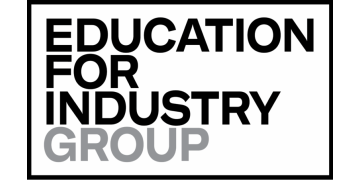The Department for Education is considering buying up to 360,000 abacuses for use in up to 6,000 schools across England to aid catch-up efforts in the wake of the pandemic.
In an early engagement notice, published on Monday, the DfE said it was exploring the “potential” use of a specific type of abacus as part of its efforts to support numeracy in schools.
The department said it wanted to hear from organisations that could “manufacture, supply and/or distribute ‘rekenrek’ style abacuses” from the start of the next school year.
They will be used in a new maths catch-up programme for primary pupils. Launching in September, the year-long “mastering number” programme, run by a DfE-funded maths network, will offer places for
reception, year 1 and 2 teachers in up to 6,000 schools.
Suppliers are being asked to say if they can “commit to and have the capacity to deliver up to 360,000 abacuses to up to 6,000 schools in England from September 2021”. The DfE has set out detailed specifications for how they should be made.
They must have two rows, each consisting of five red and five white beads, and it is “important that red beads come before white beads”.
The beads must be 0.8 to 1.5 centimetres wide, and ideally of “the flat type” rather than fully round, “as young children find these easier to move”.
The frame must be made of wood or “robust” plastic, with a metal rod for the beads. The frame would also need to be 25 to 30 centimetres wide, but the frame colour is “unimportant”.
Another specific requirement is that it should be “easy to tip back and forth so that beads easily slide across when tipped”.
They must also be suitable for children as young as four, and be “accredited with the EU safety standard CE and the BSI Kite Mark”.
The DfE has also said it wants to make sure the company supplying the equipment can demonstrate a “low carbon footprint, ethical resourcing and value for money”.
DfE looks to support maths catch-up
The department said the tender was part of efforts to explore ways to support maths catch-up at primary level.
If the total of 360,000 abacuses was supplied, and each primary school received the same number, it would work out at 60 per setting.
The government has not said how much it plans to spend on the equipment. Schools Week found various examples for sale online for between £4 and £7 each. Even at the low end of that scale, 360,000 units would cost over £1.4 million.
The tender is only in the early market engagement phase, meaning a formal procurement process has not begun.
Manufacturers only have until Friday to express an interest and confirm they have capacity to deliver the equipment, because of the “limited delivery timeframe”, the DfE said.
It is not the first time the government has sought to supply the same resource to large numbers of schools.
In 2011, Michael Gove announced every state school in England would receive a new copy of the King James Bible from government to mark its 400th anniversary. The £370,000 project was funded by charities and philanthropists.
Picture credit: Adil Jaffer, Amsterdam International Community School, @adil_3
Updated on May 25 to include details of the mastering number programme, which was announced after this story was originally published








This really had got to be a late April Fool!!
Yet again the Government dishing out big numbers to sound impressive when analysis shows they are pathetic. 60 abacuses for 6000 schools. a) what about all the other schools and why 60 for those schools which will “benefit”?
For the £4-7 figure, does that include VAT? Obviously they’d also be able to get a significant discount I’d think for such a bulk order
That said it seems bizarre and quite pointless, it definitely sounds like they haven’t consulted with any teachers.
The supply of, and training in, Numicon would be better. It’s visual, tactile and demonstrates number bonds to Infant/Primary children.
Why are they getting involved in buying specific equipment that has limited use, for only a third of primary schools? Why can’t they spread the cash around the schools and say ‘buy the most appropriate resource for your school?’ surely management of any business would pass that kind of decision down? Surely those working with the children know what resources they need most and what they will get most use out of. I’d get numicon or base 10 ahead of a Victorian counting apparatus, any day. Far more flexible and useful.
I checked to see if this was Private Eye, or whether it was April 1st. Sadly it’s not and someone (Gavin??) has had an idea but not discussed it with any actual schools.
You have to be kidding! Will we go back to quill and parchment too?
Maybe for all sake they should have held as children back a year as they have to be in education till 18 anyway, that way all benefit across the board so to speak, and those choosing to go into college does it matter they there till 20 years old, for their future, after all it them that will lose out right now rather than gaining without the added pressure and worry that they seem to be having